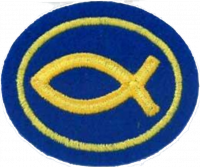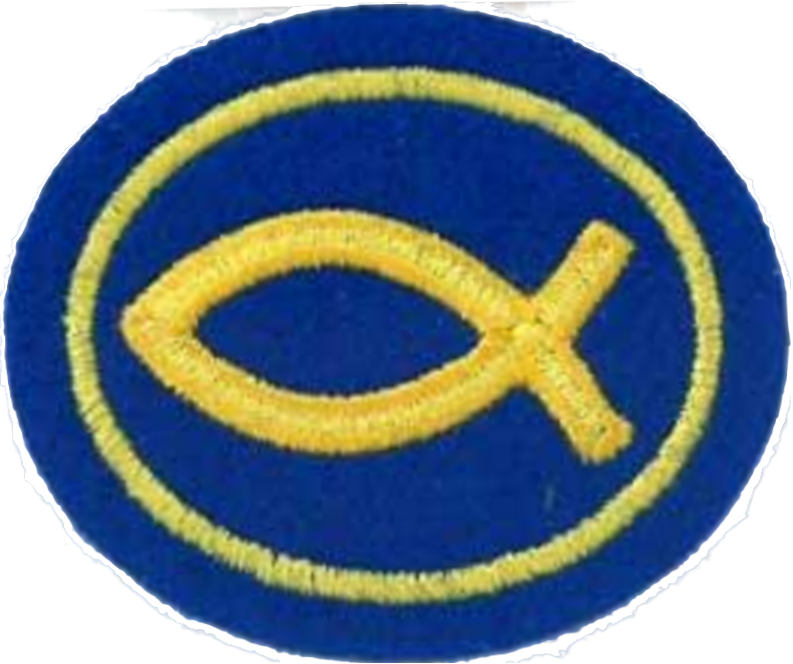Difference between revisions of "AY Honors/Disciples and Apostles/Requirements/es"
(Created page with "</noinclude>Discípulo <noinclude>") |
(Created page with "Especialidades JA/Discípulos y apóstoles/Requisitos") |
||
| Line 15: | Line 15: | ||
<noinclude></noinclude><section end=req1b /></b> | <noinclude></noinclude><section end=req1b /></b> | ||
| − | :<b>c. <section begin=req1c /><noinclude> | + | :<b>c. <section begin=req1c /><noinclude></noinclude>Misionero |
| − | </noinclude> | + | <noinclude></noinclude><section end=req1c /></b> |
| − | <noinclude | ||
| − | |||
<b>2. <section begin=req2 /><noinclude><div lang="en" dir="ltr" class="mw-content-ltr"> | <b>2. <section begin=req2 /><noinclude><div lang="en" dir="ltr" class="mw-content-ltr"> | ||
Revision as of 21:52, 26 March 2021
Nivel de destreza
2
Año
2016
Version
11.02.2026
Autoridad de aprobación
División Norteamericana
1. Definir los siguientes términos investigándolos en una fuente literaria cristiana de buena reputación y discutir su significado con su unidad, instructor o un pastor.
- a. Discípulo
- b. Apóstol
- c. Misionero
2.
For the following questions, provide not only the answer, but also the Bible text(s) where you found the answer(s).
- a.
What are the names of the 12 original disciples called by Jesus?
- b.
Name at least two Old Testament disciples.
- c.
Most Christian denominations refer to Saul of Tarsus as the Apostle Paul. How can they be so certain of his calling?
Consider the following questions and share your understanding using any creative medium (an opinion paper, a drawing, a video, a computer post with pictures, a poem, a song, a dramatic performance, etc.).
- a.
At what point did Jesus’ twelve disciples transition to apostles?
- b.
Can you be an apostle or a missionary without being a disciple?
- c.
What is one similarity between apostles, disciples and missionaries?
- d.
What is a similarity and a difference between an apostle, a missionary, and a prophet?
- e.
Considering Matthew 28:19-20, can a true disciple follow Christ without filling some apostolic or missionary role?
4.
Do one of the following:
- a.
Read Matthew 4:18-22 and briefly describe or demonstrate through a creative medium the biblical account of how the first disciples were called to follow Christ. Also demonstrate the significance and impact these callings had on the future of the gospel.
- b.
Read Acts 2 individually or with a group. Briefly describe or demonstrate through a creative medium what took place at Pentecost and determine how this event impacted the future of the Christian church.
5.
Read Acts 9:1-31. Based on your reading, from each of the three perspectives (Saul, Ananias, and a Christian in Jerusalem), discuss or role-play answers to the following:
- a.
Could, would, or should Paul be trusted by the early Christian believers after his conversion?
- b.
Must we go to God to be converted or does He come to us to offer conversion, no matter where we are or what we are doing?
6.
Read Chapter 2 of the book The Acts of the Apostles by Ellen G. White entitled, “The Training of the Twelve”. Individually or with a group, consider the methods Christ used to train His disciples. Determine if those exact methods would still work today, or would there be modern equivalents that could be used to train people to be disciples of God.
7.
With a group, role-play a specific scene from the life of a disciple, an apostle or a missionary of your choice. Briefly explain why you chose this scene and why you think it illustrates their calling from God.
8.
From what you have learned in studying these subjects, is it possible for there to be an Apostle in the Seventh-day Adventist church today? How about during any point during the time period since the mid-1840s?
9.
Illustrate through drawings, sketches, or photographs the travels of Paul as he proclaimed the gospel to the world.
- a.
Be sure to capture some of the cultural icons that Paul was facing while preaching Christianity to the secular gentile world. How do these differ from the secular cultural icons of today?
- b.
All Biblical scholars agree that there were at least three Pauline missionary journeys as described in the 28 Chapters of Acts. Some Christians hold that there was a fourth and possibly a fifth journey that are alluded to in the lost chapters of Acts (29 & 30). Talk with your pastor and discuss how you should treat these theories and would these additional journeys in any way change or illuminate Paul’s ministry.
10.
Over a two-week process, conduct a daily self-evaluation of the quality of your discipleship for that particular day. Rate based on the statements below on a scale from 1 to 10 where ten means you are very strong in that area and one means you are weak. Contemplate your assessment, set goals for improvement, and ask Jesus to provide you the necessary strength to meet these goals.
- a.
Your desire is to please God in all that you do.
- b.
You have a passion to share your faith with others.
- c.
You allow the Lord to lead your decision-making process.
- d.
You pray every day on a regular basis.
- e.
You spend time with the Lord through worship.
- f.
Your life represents Jesus to those around you.
- g.
You reach out to those who are less fortunate than you.
11.
State the Great Commission, as outlined in Matthew 28:19-20.
- a.
List three specific roles this text defines as part of a missionary or apostolic calling.
- b.
Brainstorm a list of New Testament stories that illustrate the different parts of the Great Commission.
- c.
Evaluate and list ways in which modern Christians in your area can put the Great Commission into practice.
- d.
Using what you’ve learned from this honor, brainstorm an idea on how you can help fulfill the Great Commission. Talk with your instructor and/or a pastor about your idea and then put this idea into practice for a period of at least one month. Share with your class, instructor, or your pastor how this activity has changed your relationship with God and whether you have seen any effects on others.


